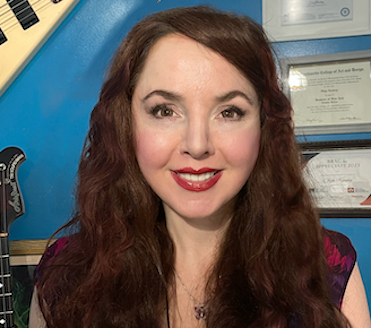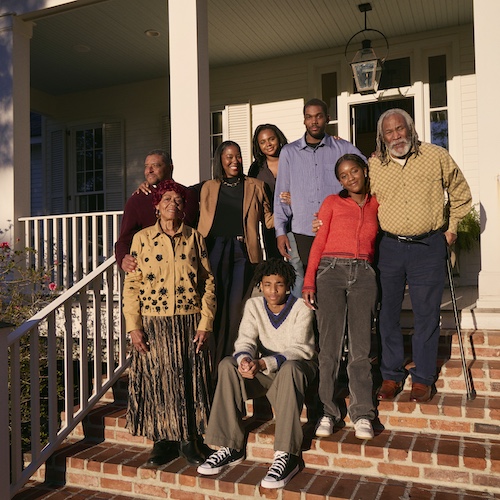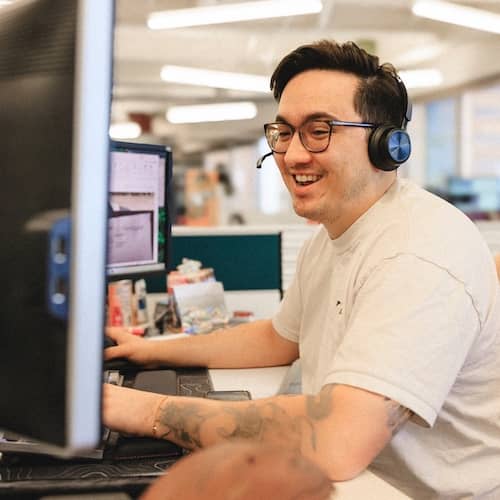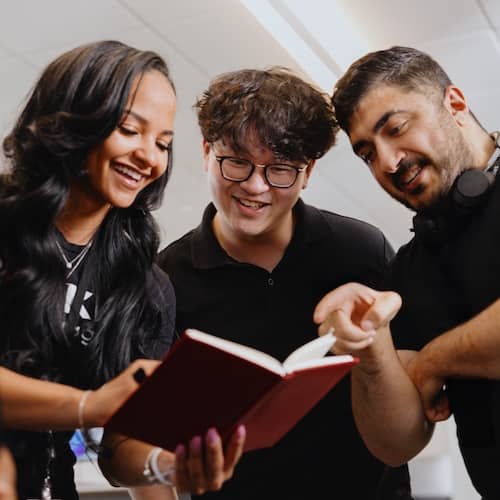History confirms that accessibility (A11y) is a powerful engine for innovation, leading to the creation of many technologies that are now used by the general population. When designers and inventors focus on removing barriers for people with disabilities, the resulting creative solutions often lead to groundbreaking innovations that benefit everyone.
Some of the most powerful inventions were first created to meet the needs of people with disabilities. This includes the invention of the phone, email, keyboard, texting, audiobooks, and many others. Inclusive design transforms technology because it inspires us to strive beyond conventional approaches, which often leads to cutting-edge solutions that transform the industry at large.
As we cultivate an inclusive culture around accessibility and design excellence, we build solutions that are both technologically advanced and human-centered. This mindset is aligned with the Rocket® mission to Help Everyone Home and reinforced by the visionary work of our CEO, Varun Krishna, to build transformative partnerships that foster innovative synergy with a positive impact on client experience, business, and society.Championing diverse perspectives at Rocket
At Rocket, we connect our daily work to its larger impact and model inclusive collaboration that creates a sense of belonging. As a person with disabilities, an immigrant, and a woman, I’m always inspired to contribute to this amazing environment, which brings remarkable people together and ignites creativity. For example, I’m honored to be working alongside Ryan Hudson-Peralta. Ryan is an inventor, disability advocate, gifted and accomplished designer, impactful writer, and speaker.
In alignment with our ISM “Obsessed with finding a better way,” Ryan turns everyday obstacles into a force for creativity and innovation, which has led him to create products like the Door Nub and design accessible websites and apps. In the words of Ryan Hudson-Peralta:
“Accessibility has always been personal for me, not only as a challenge, but as a source of creativity. Living in a world not designed for me taught me early on how powerful design can be when it’s inclusive. Every time we remove a barrier, we don’t just make something accessible, we make it better for everyone.”
Artificial intelligence (AI) and tech-enabled solutions for accessibility
At Rocket, AI is the transformative force that helps us empower clients, team members, and partners to scale accessibility within our ecosystem, products, and services. We leverage the remarkable potential of AI and tech-enabled solutions to build inclusive, disability-friendly, and future-focused environments.
As discussed in a great article by Papanii Okai, “We’re collaborating with leaders like AWS, Google, Sierra, Twilio and OpenAI to rethink how AI agents, smart contracts, and automation can reshape the housing ecosystem to be more accessible, inclusive, and simplified for everyone.” Furthermore, AI is used to aid testing to detect errors at scale with speed and efficiency.
AI also helps us increase access to assistive technologies by automating services, like captioning, wayfinding, and integrating those technologies into mainstream devices and software. The development of speech recognition software and text-to-speech features, now found in virtual assistants like Siri and Alexa, originated from devices initially created to improve the quality of life for people with physical and vision disabilities. They include limited motion and vision loss.
Eye-tracking technology relies on a combination of human anatomy (specifically the eyes and face), hardware such as camera sensors to capture data, and advanced software and AI models to process and interpret this data, allowing the system to take appropriate actions. It’s among many great examples of where AI helps people with varying disability types, including physical, communication, and/or intellectual disabilities; motor neuron disease (ALS); multiple sclerosis; cerebral palsy; Rett syndrome; autistic spectrum; etc. Furthermore, this amazing technology strengthens user research and takes cognitive science and human-computer interaction (HCI) to the next level, thus helping meet the needs of all users.
Our efforts are devoted to driving inclusive innovation and shaping ethical use of AI, and I’m honored to join Rocket’s sustainable AI community. As reflected in the “Sustainable AI: Balancing innovation and eco-responsibility” article, “Together we can shape a future where innovation and environmental responsibility go hand in hand.”
Among many other amazing examples of how we leverage AI for accessibility at Rocket are the following insights shared by Ryan Hudson-Peralta:
“At Rocket, we’re exploring how AI can strengthen accessibility from the start of the design process. We’re using tools that help detect color contrast issues, flag missing alt text, and automate accessibility testing for our components. It’s exciting to see how AI can scale inclusion, not by replacing human insight, but by giving us more time to focus on creating better, more intuitive experiences for everyone.”
Innovation is rewarded. Execution is worshipped.
Rooted in the ISM “Innovation is rewarded. Execution is worshipped,” the culture at Rocket guides and empowers us to experiment, challenge outdated norms, and create an inclusive environment that encourages team members to bring innovative ideas to life.
Incredible ideas take shape in collaborative environments, and what I particularly love is discovering team members with true talent and focus on inclusive innovation. For example, in our recent meeting to explore enhancements to accessibility automation in the quality assurance process, gifted Software Developer Adam Barron shared with me his experience seeing tenji blocks for the first time.
He described how walking the streets of Japan, he experienced a powerful sense of intentional inclusivity and how he feels a similar notion that inspires the mutual work we do to establish and continuously evolve digital accessibility for all. This inspired an idea for a Hack Week project. I believe this mindset of recognizing actionable dedication to digital inclusion and seeking ways to create new innovative solutions is what inspires me the most about the people I work with. Together with Adam, his leader Greg Presland, and many other A11y champions across the company, we teach how to apply AI features of DevTools, foster assistive technologies testing, scale consistent A11y processes, and build a vibrant accessibility community at Rocket with a focus on innovation.
Ryan Hudson-Peralta shared the following inspiring examples of innovation at Rocket:
“What I love most about Rocket is that innovation and accessibility aren’t separate goals, they’re part of the same process. When we built the Design System, we didn’t just rebuild components; we reimagined how accessibility could scale across every product. That collaboration between design, content, and engineering proves that inclusive design isn’t just possible, it’s the standard.”
The culture of mentorship, growth, and positive change
In the words of Ryan Hudson-Peralta:
“The future of innovation is inclusive, and it starts with empathy. I’ve learned that when we design and build with everyone in mind, we don’t just change interfaces; we change mindsets. At Rocket, I’ve been lucky to mentor and work alongside people who approach every challenge with empathy and creativity. When we include different perspectives, we don’t just make our products stronger, we make our teams stronger.”
Working alongside amazing people like Ryan and other ethical beacons, Rocket culture inspires us to drive positive change in the tech industry. We believe that accessibility is synonymous with empathy, and it’s the key to inclusivity. With mentorship and empowerment, we practice innovation to break down barriers and inspire the next generation to Help Everyone Home and do the right thing for every client, every time.
Contributor: Ryan Hudson-Peralta — Creative Director, Product Design (Co-author/contributor)

Olya Kenney
Olya Kenney is a mentor, practice leader, and our Principal Digital Accessibility Strategist. Since Olya joined Rocket, she’s made a remarkable impact on the growth and development of the organizational accessibility program, fostering inclusivity of digital products and environments and driving disability-friendly culture.
Related resources

3-minute read
Accessibility to own the dream
Rocket’s mission to help everyone home starts with accessibility. Discover how Rocket is embedding digital accessibility across products, platforms, and culture to foster inclusive homeownership and prosperity for all and join us on a journey to bridge the di...
Read more

4-minute read
Defining the future of accessibility: Inclusive digital environments for every client, every time
Learn how our team member, Olya Kenney, uses technology to expand accessibility and promote inclusivity.
Read more

7-minute read
Sustainable AI: Balancing innovation and eco-responsibility
Explore the environmental impact of generative AI and discover practical strategies for using technology responsibly while minimizing carbon footprint and resource consumption.
Read more

